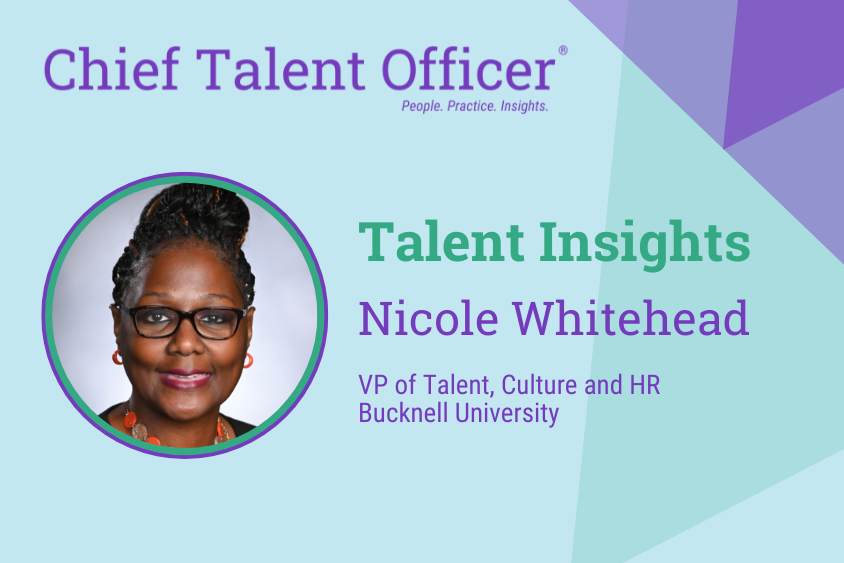Chief Talent Officer’s “Talent Insights” series is dedicated to sharing the insights and expertise of influential talent executives. In this Q&A series, we garner strategic insights, innovative approaches and challenges overcome from C-suite talent and HR executives, chief talent officers, chief people officers and more who are shaping the future of talent management.
What initially drew you to a career in talent management, and how have your experiences in the field evolved over the years?
I began my career in operations. When given the opportunity to build a talent management infrastructure to engage and retain talent, my passion for talent management was ignited. Over the last 20 years, after shifting to people management, I have evolved to view talent management as a strategic imperative for inclusion, retention and employee engagement.
What core values and principles do you believe are essential for building a positive and inclusive company culture?
Engaging employees with a focus on dignity and humanity has been a hallmark of my people engagement strategy. For a culture to be inclusive I have learned that creating a climate where the whole person can show up to work with other committed professionals towards a common mission isn’t just a goal, but a non-negotiable for sustained success.
Can you share a significant challenge you’ve faced as a talent leader and how you successfully navigated through it?
I was new to a CHRO role and faced issues with the culture of the human resources team. Historically, there was no strategic plan or priorities to align the work of the division with the company’s comprehensive and long term strategy. The SWOT of the team revealed a desire to be strategic thought partners and trusted people partners to the community and leaders, but the team lacked the necessary direction, alignment and commitment. Over a three year period – through a strategic visioning process, talent assessment and engaging of the team at all levels as well as stakeholders – we were able to transform the culture, deliver metric assessed services and shift from administrative partners to thought leaders. The targeted skill development and upskilling provided the depth and breadth of learning to inspire confidence in the team’s ability.
What strategies have you found most effective in attracting and retaining top talent in competitive industries?
Leaning into our core values and opportunities to connect candidates through narrative stories to solidify the “experience” at my company has been key. Segmenting options to attract talent with opportunities for development, learning pathways, menued approach to benefits, recognition and, most importantly, connecting their passions with our purpose has set us apart.
How do you balance advocating for employees’ needs while aligning with your company’s business objectives?
“I challenge myself daily to be the Picasso that can paint a picture of people that reflects their impact for today, while leaving part of the canvas for them to flourish in the future.”
Over the years, I have done a better job with ensuring each employee understands how their role aligns with the mission, vision and strategy of the company. We make intentional connections between employees’ needs and our ability to deliver on the mission while creating an environment where they remain engaged and can thrive.
What leadership skills do you prioritize and cultivate as a senior talent leader to inspire your team and drive talent initiatives?
Agility, transparency and systemic humanity are key to my ability to influence as a senior leader. Recently a direct report shared with me that I lead by example, and as such, it inspires them to want to be that beacon from her direct reports. Talent leadership is an art and a science. I challenge myself daily to be the Picasso that can paint a picture of people that reflects their impact for today, while leaving part of the canvas for them to flourish in the future.
What game-changing advice would you offer if you could go back in time and mentor your younger self?
It takes courage to step into the arena, see your vulnerability as a strength.
What do you feel is currently the single biggest challenge facing talent professionals and the industry as a whole?
Culture eats strategy for breakfast. There is a challenge in creating environments with nimble vs. rigid structures that engage and create a sense of belonging for divergent populations.
We’re always looking to showcase innovative tools and technologies. Can you share one tech product or platform that has significantly improved your work processes and why you find it valuable?
Workday has been great at streamlining processes and work streams to reduce administrative tasks.
Interested in being featured in our “Talent Insights” series? Please complete this FORM.
















